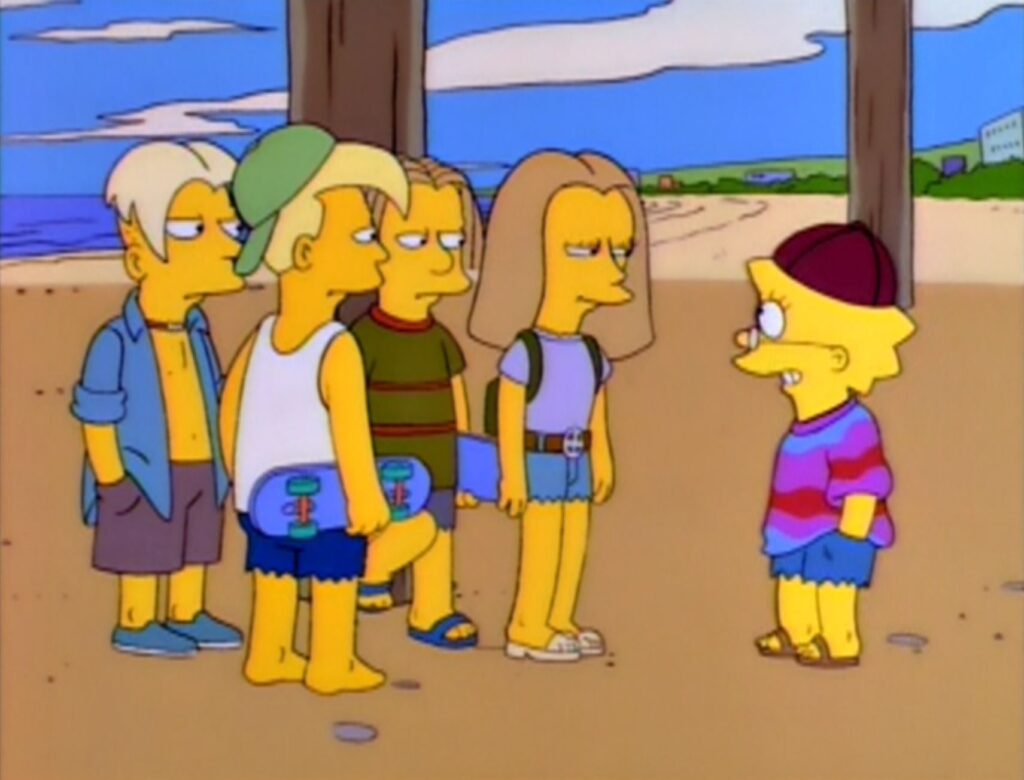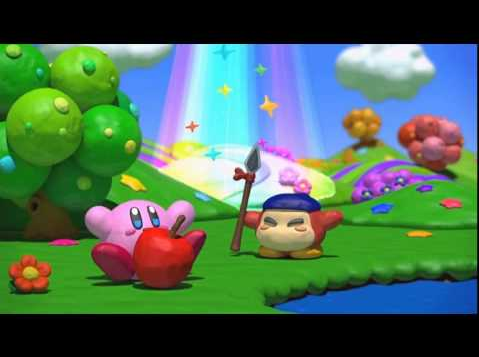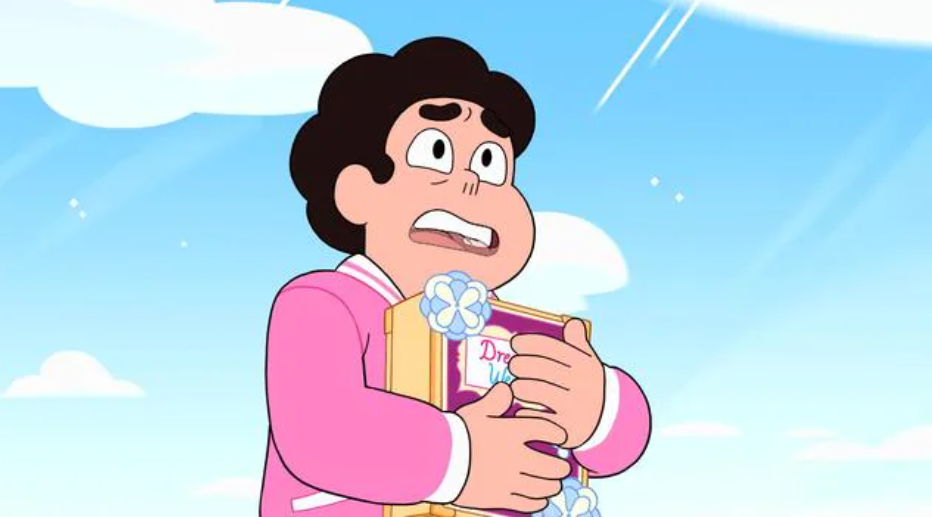This is a bit different from the kinds of posts I like to write about, but it’s something that has been in the back of my head for years now, and especially with doing talks about the industry and YouTube with teens and parents. Part of what I do with Game-Wisdom is looking at game design and gameplay of games, which also means looking at the people who cover them or use them as a part of their careers. What I’ve seen over the past decade and into today has been the cultivation of the stereotype of the “toxic nerd” and how things have changed surrounding the internet, video games, and fan culture.
The Original Nerd
I can say I’m one of those people who literally grew up with the game industry and its place in pop culture. From the 80’s and into the 2000’s, video games were not considered “mainstream.” They were as inherent a part of nerd culture as computers, “Revenge of the Nerds” and the “geeks” used as joke characters on sitcoms.
The entire personality of the underdog has been a part of things from the beginning and the game industry’s embracement of both the power fantasy trope and escapism. You may be an unpopular nerd in real life, but in games, you can save the princess, win the super bowl, have billions of dollars, etc. For many people, video games became a part of their identity, something you should take note of when I come back to this point in a few minutes.
Around the middle of the 2000’s and into the 2010’s, the Game Industry blew up big in the mainstream. The likes of Grand Theft Auto and Metal Gear Solid showing mature storylines, the rise of Esports, and just the amount of money video games brought in was huge. The idea of making a joke about someone playing video games or wanting to pursue a career making them today makes as much sense as deriding someone for wanting to play a professional sport. Video games attracted many introverts for this very reason, including yours truly, but the problem is how many people went too far in embracing this culture.
Simpsons Stand In
When I think about how the idea of the nerd has changed, I can equate this, weirdly enough, to how “The Simpsons” have changed in terms of their characterization. I’m sure there are psychology tests in terms of what your favorite Simpsons episodes say about you. One of my favorites was “The Summer of 4 ft. 2”, a Lisa-focused episode exploring what it’s like to be an introvert and reinventing yourself somewhere else.

Introverted characters are often hard to do justice to in any medium, and this Simpsons episode I felt was really good
Lisa has always been the stand-in for the introverted nerd, but as the show’s writing changed and the characters themselves, so did Lisa’s depiction. Later plotlines surrounding Lisa into the 2000’s and 2010’s highlights the behavior of the toxic nerd. That the second she finds any kind of belonging or attachment to something, it becomes her entire personality. To the point that she completely dresses differently, derides people who don’t agree with it, and ultimately takes it too far and is taken down a few pegs by the end. That if you are an underdog or outcast, then it’s perfectly fine when the role is reversed to punch down at anyone who treated you badly (and the reason why “Revenge of the Nerds” has fallen out of grace in pop culture) or doesn’t support your thing as much as you do.
When I was growing up, I always assumed that fellow gamers were like Lisa in the early episodes, but as we entered the online age, it turns out there were a lot more like modern Lisa.
Online Kingdoms
The Internet and Internet culture have completely changed how people communicate and find information in our lifetime. While some people joke about the shift in culture, it really is a different world from the 90’s than it is today. What started as just watching people making weird videos online, online creators and “influencers” have become big business not just in the game industry, but culture all around. Hearing drama happening from an influencer is just as expected as the tabloids having a scoop on a celebrity.
This has also created a brand-new form of entitlement and toxicity. Today, anyone can get their own personal soapbox to stand and shout from, but now they can get endorsements and people donating to them while ranting and raving. You can see this from the number of “rage compilation” videos and people on YouTube and Twitch acting like they’re the kings and queens of their own personal kingdom: a one-room kingdom. In many cases, there are people who became famous simply because they had no filter, and sites like Twitch and YouTube promoted them in the interest of money over ideals.

I’m not going to be showing images of examples to avoid getting in trouble, so here’s Kirby doing Kirby things
You may think this only applies to big-name people, which for you reading this, you probably know and follow way more than me. But I’ve seen this mentality for anyone with even a small following that they’re somehow better than anyone else and that their opinion is law. Part of my research involves watching compilations of YouTubers and streamers behaving badly to learn what not to do, and there’s always this combination of entitlement and the God complex in the worse examples. Because you are on stream for more than four hours a day or have X amount of subscribers, you are somehow inherently more important and right than anyone else, and it doesn’t matter if you stream to dozens, hundreds, or thousands of people.
One comment I hear a lot from new people who follow me is that I’m always so calm in how I talk and never lose my cool. I like to equate that to the fact that despite being at my computer and “always-on,” I don’t feel the need or want to put on an act. How I act here is very much how I would act in real life. While I enjoy having people follow me, whether it’s on YouTube, Game-Wisdom, Medium, or anywhere else I post, I do not consider myself a celebrity in any respect. I think I’ve also cultivated a community that while they enjoy my work, they’re not obsessed with me or it.
Favoring Fandom
Everything that I’ve talked about so far can also be translated to the rise and toxicity surrounding fandom and fan culture. Make no mistake, I have grown to despise fan culture in its many forms. There’s nothing wrong with liking a property, person, or content, but when you make it a part of your personality and self-worth, that can lead to trouble. Fandom and the toxic nerd go hand-in-hand in terms of gatekeeping and entitlement. If you disagree with someone about their favorite property, then you must be attacking them personally and how dare you. Likewise, any criticism means that the critic “doesn’t get it” or “they’re not a fan,” because if they were a fan, then they never point out any problems, right?
Video games and nerd culture are no longer the underdogs, but many people still view playing video games like some badge of honor that must always be defended or it will lose its integrity and luster. When you combine fandom like this with the potential for entitlement of online creators and spaces, it creates a very unhealthy atmosphere. A huge aspect of nerd culture beyond just video games has been becoming more mainstream, but that hasn’t stopped people from defending the old ways and attacking new people trying to get in. This has been part of the efforts of Gamergate (but of course not the whole story), which we are still seeing reverberate out today.

Popular animated series are not immune to controversies surrounding fandom and fan culture
From Warhammer to Magic, Star Wars/Trek, animated series and comics, to even just video games in general, any aspect of nerd culture that wants to change to become more accessible always has people fighting back. That if something was like X 20 years ago, then it must always stay that way. Honestly, I don’t care if you can’t name every Mario game, want to play games on the lowest difficulty, or the only reason you wanted to play a game was that the main character looks cool. The idea of yelling, harassing, or threatening someone because they don’t like the same games I do or disagree with me about something has never crossed my mind.
Video games are no longer this exclusive club, and while many people still dream of those days, they’re not going to return. Likewise, just because you really like something A: doesn’t mean that it needs you to defend it, and B: doesn’t give you the right to harass someone for not liking it, and this goes for everything, not just video games.
The Internet Life
The world has dramatically changed since I was born in the 80s, I grew up in a time before the internet, before influencers, when I was alone with my little hobby of games. I, along with anyone over the age of 30, will never really know what it’s like to grow up as a child in an age of instant global information. That someone can connect to millions of people about any topic and could very well be exploited in many ways as we’ve seen over the past few years. This is normally the part where I have some idea of a solution to the problem at hand, but this is one of those times that I really don’t.
For people who think that taking away phones and the internet is the answer, all you’re doing is restricting your child’s ability to function in the world today — we live in an online world now. Any person, business, or institution that isn’t thinking globally will be left behind. I do think that just as schools teach social skills, they need to teach online skills as well. This is especially poignant with the number of children looking at Youtubers and Streamers as either their role models or a potential career to chase after.
For you, the reader, what do you think about online culture today? Are we passed the point of the internet being considered a “wild west”?
If you enjoyed this story, consider joining the Game-Wisdom discord channel. It is open to everyone.

